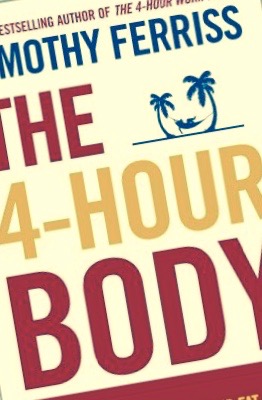What weightloss can teach you about changing your organisation
There are an almost infinite number of books written about change management and what to think about when you try to make a major change in a company. There are also an huge number of different diets and books that claim to help you loose weight. So, if you are still struggling, it is probably not due to lack of information.
“”If more information was the answer, then we’d all be billionaires with perfect abs.””
Most attempts to implement change in organizations fail (about 70% ) and most people fail to attain the body they want (at least over time).
The solution is probably not more books, new diets, new organizational structures or more information. Those who do succeed do so in sometimes seemingly absurd ways. Some organisations flourish without managers and other do not. Valve Software, for example, have become very successful with no managers at all. They have desks with wheels so employees can move to a new team when you do not like the projekt they are in. Zappos have instead a 29% employee turnover after moving to a flat organisation, i.e. no success so far.
When it comes to diets it is the same thing. Some find it easy to loose weight with the 5:2 diet, some don’t. Some find eating carbohydrates a problem, others don't.
It is not hard to find strange diets that have at least one follower.
- Lord Byron allegedly ate potatoes soaked in vinegar to keep in shape. Not a bad choice since vinegar has been found to increase insulin sensitivity
- In the ’90s some believed that you should eat a menu determined by your blood typ. If you had blood type O you should stick with an ”ancient” meny of fish and meet. Wheat made you sluggish.
There are more informed ways to diet these days, but success does not seem to depend on the diet, or, when it comes to companies, the organizational structure.
If the type of diet is not a key success indicator for loosing weight, then what is?
There are a few reasons why you fail when trying to change.
- The reason for action is insufficient - to change is a nice-to-have, not a must-have -and you are actually quite busy with a lot of other "musts"
- You, me , your coworkers and every one else are terrible at following advice, even when you know it would be good for you
- You have not set up reminders and tracking of your progress, which leads to no awareness and no behavioral change
Tim Ferriss (author of the Four Hour Work Week) make a good case, in his book The Four Hour Body, for the following steps to loose weight.
- You need a sense of urgency that, not only makes you want to change, but makes you need to change
- Find one to three metrics that you want to change and start monitoring them (weight, percentage of fat etc). They do not have to be measured with a high degree of certainty, they only need to lead in the right direction. So don’t get derailed by minor details around measures, just make sure you measure in the same way (e g step on the scales in the morning before breakfast). Make sure to calculate your starting metrics. Take a few pictures - that is great for motivation down the line.
- Start with one small thing and see how it affects the metrics . When it comes to weightloss just taking a picture of your food before eating it has shown to work (Flash diet) or one just performing one pushup every evening
To drive change in a company you probably need to do exactly the same thing. But with different metrics.
- Sense of urgency - You will have to make a compelling case for why you not only want to change, why you need to change. Some will be attracted by the new compelling vision and some needs to be scared out of their comfortable chairs to join
- Metrics - Decide on on to three KPI:s that are indicative of the change you want to make
- Start small to learn - This can be getting aware of all your development initiativs and show the new metrics/KPI for each on a dashboard
Small things done consistently matters both for individuals and for organisations. Normally the metrics move in the right direction and you get more motivated.
Of course changing a whole organisations with many people is more complex and require a different scale than if it is just you who want to change. But the three bullets from Tim can probably be used in any situation where you want to change something, regardless if it is yourself, your company or someone around you. Although it is usually better to focus on yourself - remember the part about advice above.
My struggle is to gain weight. I don’t have as many books to choose from to help me, but chances are that the same steps can be applied for my challenge.
What if this is the only three steps you need to make any changes in your life and become superhuman?
How hard could it be...




